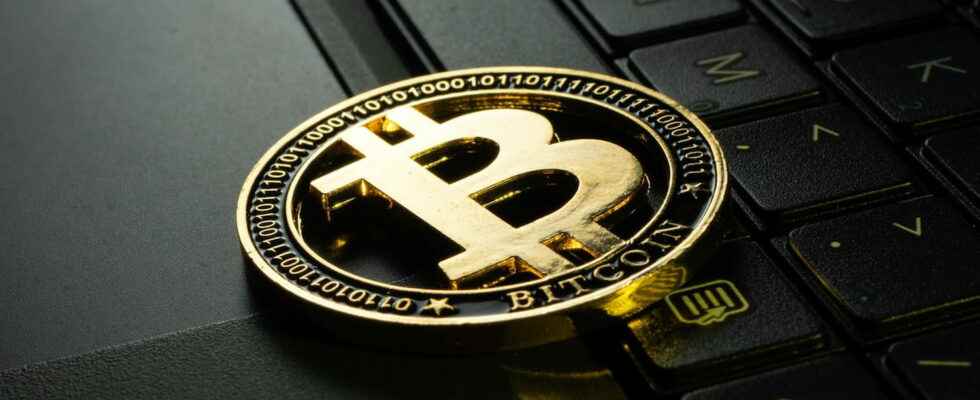The European Parliament is preparing new legislation to regulate the cryptocurrency market. Objectives: to fight against money laundering and to introduce more transparency in a sector which is particularly lacking in it.
According to a recent Ipsos-KPMG study, 12% of French people will own cryptocurrencies at the end of 2022. This phenomenon, which is largely speculative, is worrying because users of crypto-assets are not covered by European consumer protection rules and are not very often not at all aware of the risks involved in terms of loss of capital. Moreover, as noted by the European Parliament, “As transactions are mostly done anonymously, cryptocurrencies are widely used for criminal activities.” Long silent on this subject, the European Union (EU) is now working on several texts to “boosting the potential of crypto-assets while protecting citizens from the threats they pose.” Today, part of the appeal of crypto-assets lies in the fact that they do not require a central ledger or an institution (as in traditional banking) which allows simple and secure transactions between two parties without intermediate.
Cryptocurrencies: an environment that escapes all regulation
So much for the positive aspect. But at the same time, the cryptocurrency market (there are currently more than 13,000 according to data from the site Quinceko !) whose activity, very volatile, exceeded the threshold of 3,000 billion dollars in capitalization in November 2021 and has since been halved, is marked by very great financial instability, sometimes punctuated by market manipulations and by financial crime. Fundamentals that most often elude small savers blinded by the promise of a rapid return on investment. Based on this observation, the EU has been undertaking for several months now to restore order and provide a better legal framework for these activities. An approach that arouses an outcry from certain players in this economic sector, where we find in places, beyond the traditional incantations, a whimsical argumentation cheerfully flirting with the most perfect bad faith.
According to the new requirements approved at this stage by European parliamentarians to ensure the traceability of crypto-asset transfers and to block suspicious transactions (i.e. in practice to fight against money laundering), “all transfers of crypto-assets must be accompanied by information concerning the sources and the beneficiaries”. More precisely, “before making crypto-assets available to beneficiaries, providers should verify whether the source from which they emanate is not subject to restrictive measures or that there is no risk of money laundering or financing of terrorism.”
Cryptocurrencies: unified rules for Europe
For MEP Ernest Urtasu, co-rapporteur of the Committee on Economic and Monetary Affairs of the European Parliament “As past money laundering scandals ranging from the Panama Papers to the Pandora Papers have shown, criminals thrive where anonymity is guaranteed due to confidentiality rules. With this proposed legislation, the EU will fill this gap.” For MEP Aurore Lalucq who pleads for the extension of European directives from the world of finance to crypto-assets, “the challenge (of the texts currently being drafted and in particular of the MiCA for Market in Crypto-Assets, Editor’s note) is to bring crypto-assets into normal rules, which apply to the rules of the bank and finance”. “We want to propose solid regulation in a sector which to date has almost no obligations.” (…) “We want to standardize the rules at European level in order to better protect consumers and users.
Among these advances, the classification of assets and their supervision, the obligation for service providers to obtain approval, to subject their senior executives to “skills and good repute tests”, adds this very advanced economist on This folder. One would have thought that this sudden desire for transparency carried by the European Union would be likely to obtain the consent of professionals in the sector, a letter, revealed exclusively by the specialized site Big Whale, tends to prove the opposite. In this missive addressed to the 27 EU finance ministers, parliamentarians and 4 European commissioners, 46 leaders of crypto companies and associations protest against the new legislative framework to come, denouncing “hypersurveillance of crypto transactions “, an “unprecedented threat of regulation”, and refuse “the caging of Bitcoin” by explaining in particular that it would be necessary instead “to promote the growth of decentralized technologies in Europe by exempting them from the obligations of registration and functioning of traditional organizations.
Crypto-assets: divisive bills
For his part, in a interview recently granted to the magazine Mieux Vivre Votre Argentthe LREM deputy from Paris, Pierre Person, author of a notable report in 2019 on crypto-assetssees the implementation of future procedures as a potentially “attack on individual freedoms”pointing out that “this shows the presumption of guilt that rests on this technology and its users in the mentality of some MEPs”and recalling that in terms of crypto-assets (and therefore cryptocurrencies) “the facts of money laundering or terrorist financing have never been proven by those who keep chanting them.” It is just unfortunate that there is no substantiation for this claim and that such an expert apparently failed to delve into reading the very latest Europol report On the question. Between the partisans of laissez-faire and the proponents of regulation, the positions seem for the moment difficult to reconcile. On a European scale, the legislative shuttle is following its course: after having examined and modified the Commission’s proposal, the European parliamentarians have decided to start negotiations on the final form of this “crypto-regulation” with the countries of the EU in the European Council.
